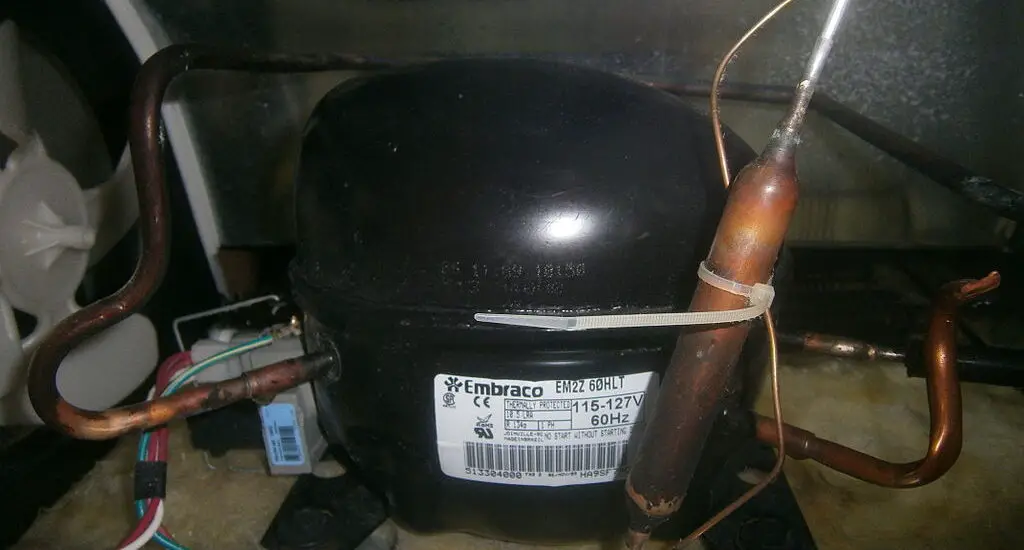Is your refrigerator compressor getting louder, this comprehensive guide will walk you through diagnosing and resolving this common issue in a series of clear, easy-to-follow steps.

Table of Contents
Identify the Source of the Noise
The first step in resolving the issue of a loud refrigerator compressor is to accurately identify that the compressor is, indeed, the source of the noise. To do this, follow these steps:
Unplug the Refrigerator: Always prioritize safety. Unplug the refrigerator to prevent any accidental electrical shocks.
Open the Fridge Door: Open the door and listen carefully. If the noise stops, the problem could be with the evaporator fan which is typically located in the freezer compartment.
Close the Fridge Door: Close the door and move to the back side of the refrigerator.
Locate the Compressor: The compressor is usually situated at the lower back side of the fridge. It looks like a small motor and is typically round or cylindrical in shape.
Listen: Stand near the compressor and listen. If the noise is coming from this area, you can be fairly certain that the compressor is the culprit.
Refrigerator Compressor Getting Louder Solutions
Is your refrigerator compressor getting louder? Try the solutions below to resolve the problem.
Check for Dust and Debris
If your refrigerator compressor is making more noise than usual, dust and debris could be a major factor. Here’s how to check and clean it:
Unplug the Refrigerator: Safety first. Always unplug the fridge before attempting any cleaning or maintenance.
Remove the Back Panel: Most refrigerators have a removable back panel. Use a screwdriver to remove it and gain access to the compressor and condenser coils.
Vacuum the Area: Use a vacuum cleaner with a hose attachment to clean around the compressor and the coils. This will remove most of the loose dust.
Wipe Down: After vacuuming, use a damp cloth to wipe down the compressor and surrounding area. Make sure the cloth is only damp, not wet, to avoid any electrical issues.
Check for Improvements: Once everything is clean, plug the refrigerator back in and listen for any improvements in noise levels.
Inspect for Wear and Tear
If the refrigerator is old, it’s possible that the compressor is simply wearing out. Here’s how to inspect for wear and tear:
Age of the Fridge: Consider how old the fridge is. If it’s over a decade old, wear and tear could very likely be the issue.
Listen for Specific Noises: A worn-out compressor may produce specific sounds like grinding or knocking. This is a strong indicator of wear and tear.
Check Cooling Efficiency: If the fridge isn’t cooling as well as it used to, it might be due to a weakening compressor.
Frequency of Operation: Pay attention to how often the compressor cycles on and off. If it’s more frequent than usual, this could indicate a problem.
Professional Inspection: If you suspect wear and tear, consult a certified technician for a more thorough inspection. They can run diagnostic tests and advise whether repair or replacement is necessary.
Check out these other articles…
Refrigerator Compressor Discharge Line: Complete 411 Guide
Refrigerator Compressor Duty Cycle: What You Need to Know
Refrigerator Compressor Does Not Turn Off: 4 Causes & Fixes
Refrigerator Compressor Does Not Turn On: Proven Fixes
Refrigerator Compressor Explanation: Comprehensive 411 Guide
Contact a Professional
If you’ve ruled out simple issues like dust and debris and suspect that the problem is more serious, the next step is to consult a qualified technician. They can perform tests to accurately diagnose the problem and can provide solutions that might range from minor adjustments to compressor replacement. Always make sure to use a certified service provider for this kind of work to ensure quality and safety.